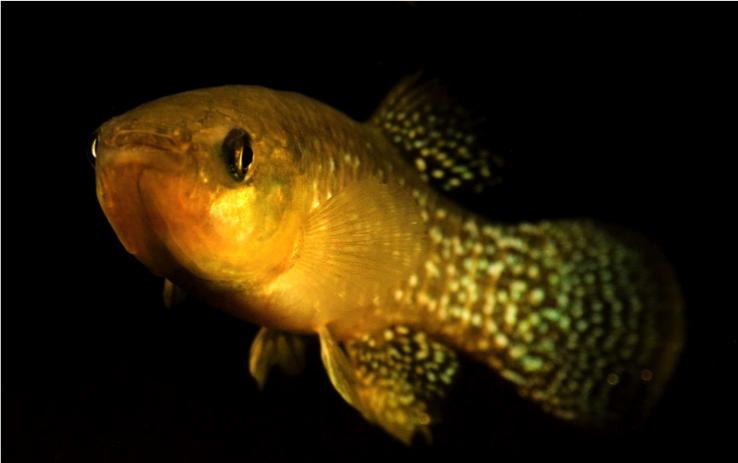Evolution works in strange ways, it can give living things new features making them able to live in new environments, for instance. In today’s highly polluted industrial world, many animal species are experiencing massive changes of their habitats, with most being the pollution and extreme alteration done by humans. One fish species (Atlantic Killifish) evolved, becoming 8,000 times more resilient to toxic waste, compared to regular fish.

A new study discovered that the Atlantic Killifish, living in the East Coast estuaries that are heavily polluted by humans, managed to survive the horrible living conditions thanks to the evolution. The fish became highly resilient to industrial pollutants, managing to survive in environments containing such a high amount of pollutants that would kill normal fish.
The fish is popular among aquarium owners, and is highly susceptible to environmental changes; Ecologists use the fish as an indicator species, in order to discover environmental changes.
The study was published in the Science Journal. Researchers sequenced the genomes of almost 400 killifish. There was two samples, one containing killifish from highly polluted sites, and the other containing killifish from non-polluted sites. The polluted sites chosen were tainted by a large mix of different pollutants (heavy metals, dioxins, hydrocarbons, etc.) since 1950’s.
The fish managed to survive thanks to its high levels of genetic variation, the highest variation found in any vertebrate species, including humans. The higher is genetic variation, the easier for a species to adapt to changes. For instance, weeds and insects can quickly become resistant to the pesticides because they two have very high genetic diversity, the same case as with bacteria and their resistance to antibiotics.
Scientists found that the incredible genetic variation of the killifish makes the species extremely capable of adapting and surviving in radically altered environments. They stated that “High genetic diversity in killifish seems to allow selection to act on existing variation, driving rapid adaptation to selective forces such as pollution,” meaning that the fish could adapt to a new environment even before it got radically changed.
Andrew Whitehead said that humans can’t expect for all species to adapt to radical environmental changes caused by humans. He said that “Unfortunately, most species we care about preserving probably can’t adapt to these rapid changes because they don’t have the high levels of genetic variation that allow them to evolve quickly.”
